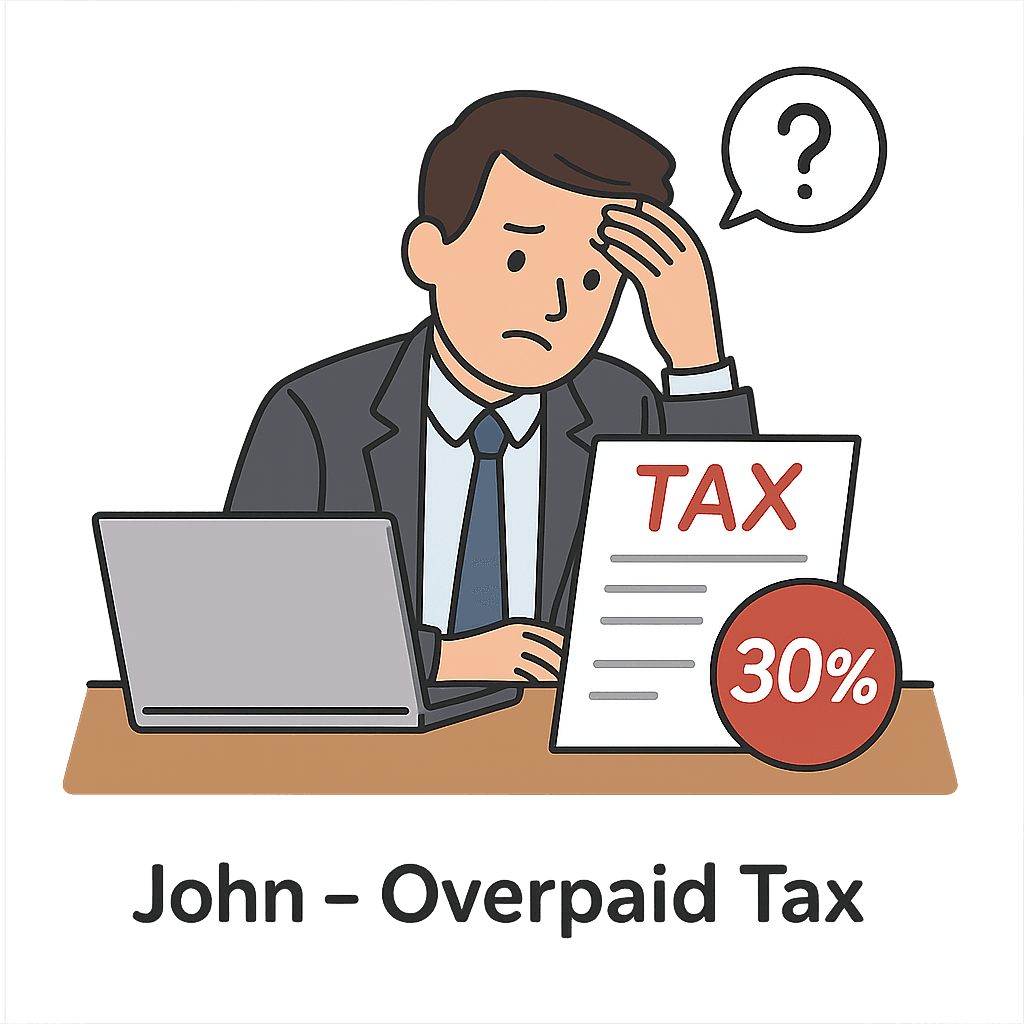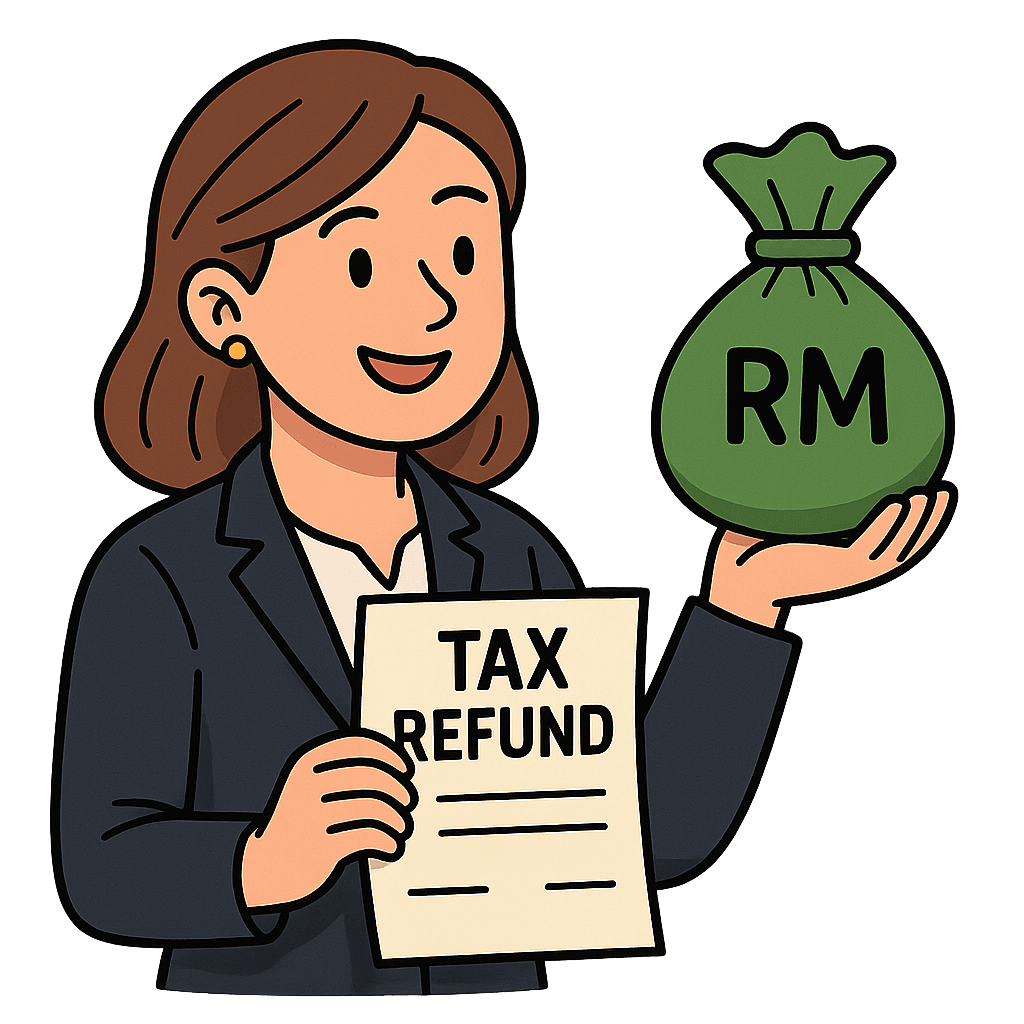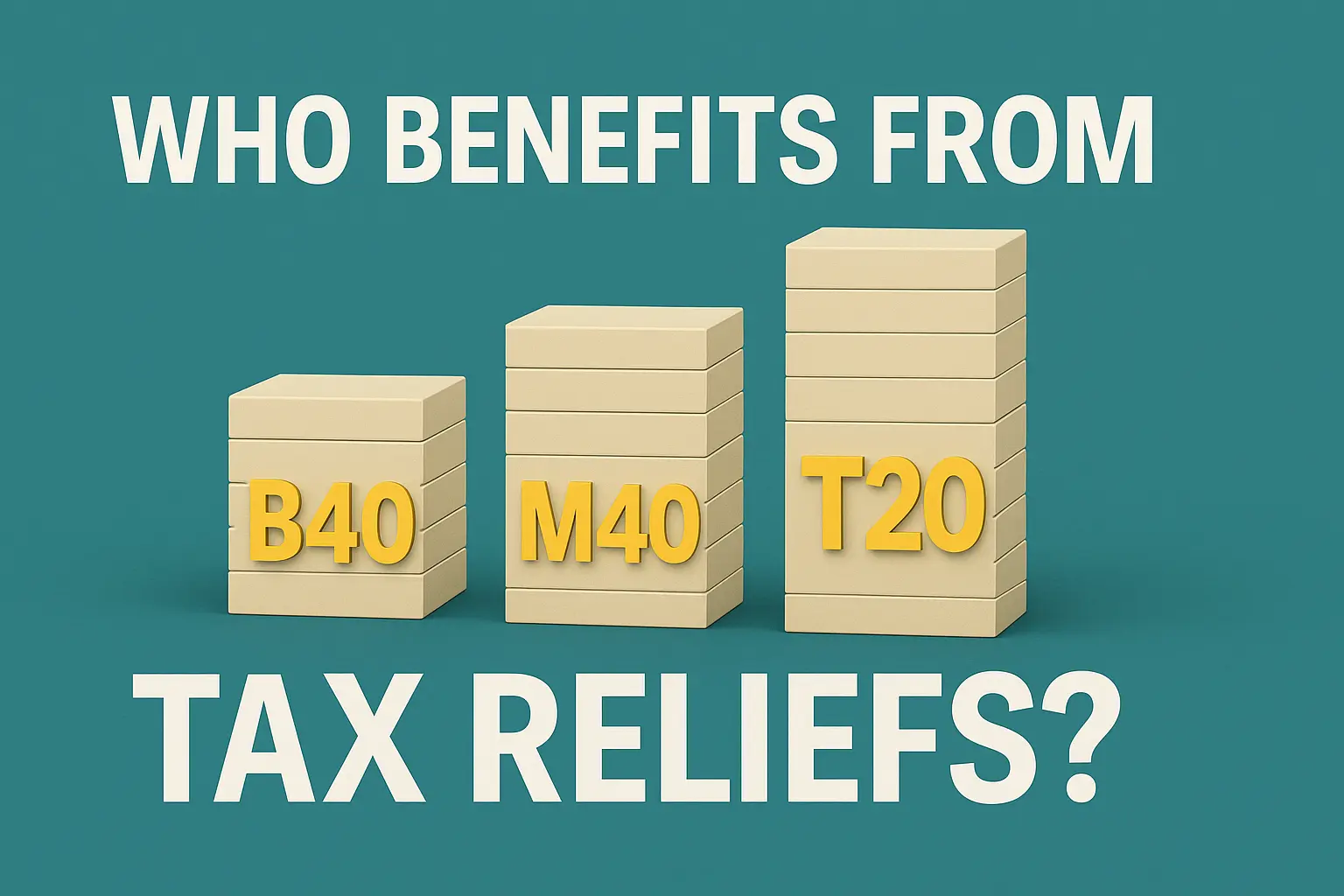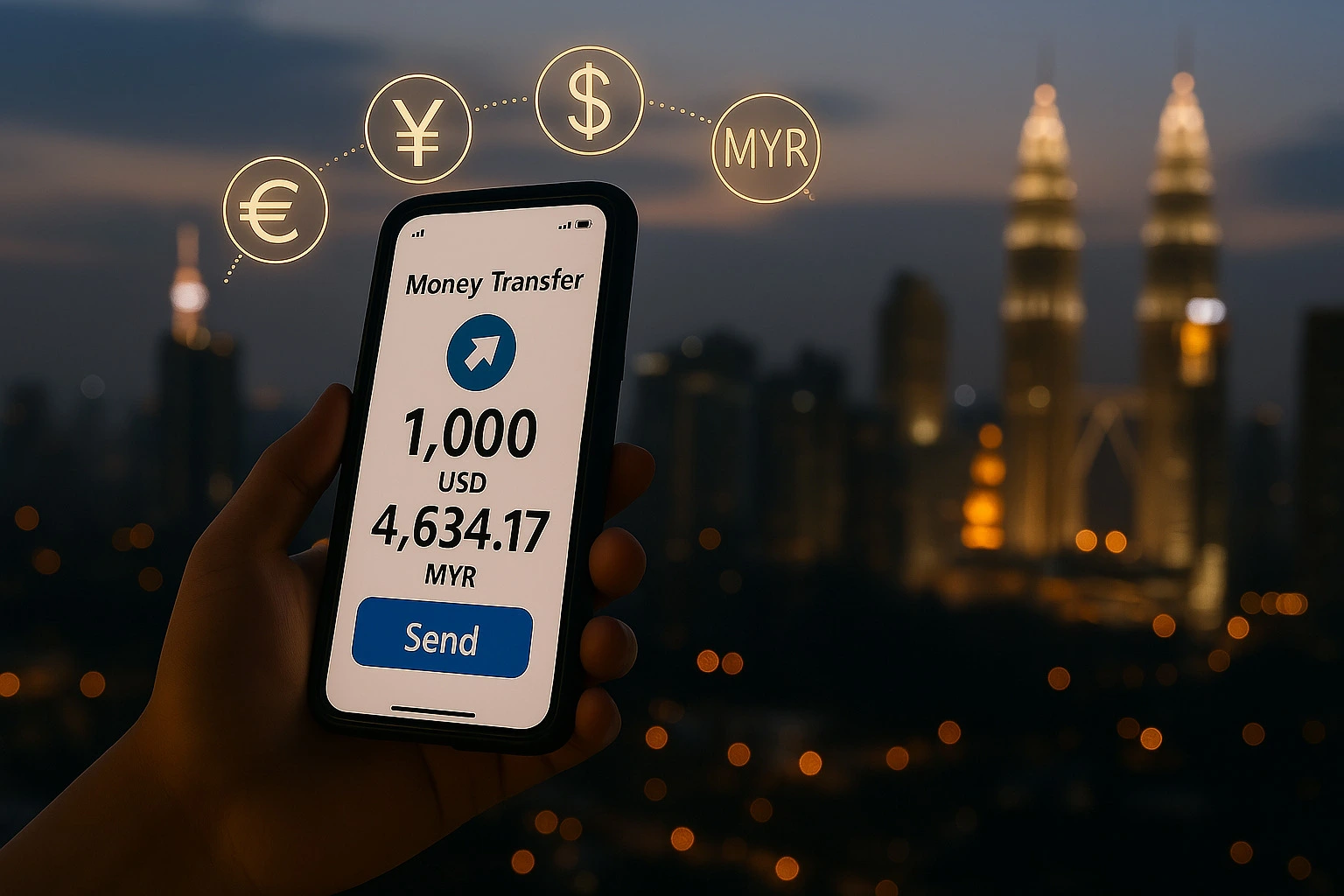If you’re an expat working in Malaysia, understanding how tax residency works can save you thousands of ringgit. The key rule to know is the 182-Day Rule, but many expats, especially those who arrive late in the year, overlook this and overpay taxes. What’s more, there’s a lesser-known rule called the Linked Period Rule that could qualify you for lower tax rates even if you haven’t stayed a full 182 days in one year.
Let’s break this down clearly and simply so you can avoid costly mistakes and possibly get a refund.
What Is Tax Residency in Malaysia?
Malaysia’s tax system is based on physical presence, not your nationality or visa type. Your tax residency status determines how much tax you pay and whether you qualify for reliefs.
Tax Categories:
- Resident Taxpayer:
- You’ve stayed 182 days or more in Malaysia in a calendar year (January 1 – December 31).
- Tax Rate: Progressive (0% to 30%)
- You qualify for tax reliefs and deductions.
- Non-Resident Taxpayer:
- Stayed less than 182 days.
- Flat 30% tax rate on all Malaysia-sourced income.
- No tax reliefs or deductions.
4 Ways to Qualify as a Tax Resident (as per Malaysian Income Tax Act 1967, Section 7):
Let’s make this real with examples so you can see which one may apply to you:
1. 182-Day Rule (Section 7(1)(a))
You’re in Malaysia for 182 days or more in 2025.
Example You arrived on March 1st, 2025 and stayed continuously till September 1st, 2025 (185 days). You qualify as a tax resident in YA 2025.
2. Linked Period Rule (Section 7(1)(b))
You stayed less than 182 days in 2025 but that period is linked to a continuous period of 182+ days that continues into 2026.
Example You arrived in Malaysia on November 1st, 2025, and stayed until July 31st, 2026. Your stay forms one continuous period of 273 days (Nov 2025–July 2026). You qualify as a resident for YA 2025 under this rule.
🧠 Important: Temporary absences like business trips or sick leave (less than 14 days) won’t break your “continuous” stay.
3. 90-Day Rule + History (Section 7(1)(c))
You stayed at least 90 days in Malaysia in 2025 and were resident or present for at least 90 days in 3 of the last 4 years.
Example You were in Malaysia for 120 days in 2025 and were here for more than 90 days in 2022, 2023, and 2024. You qualify as a tax resident in YA 2025.
4. Resident in Next Year + Prior Residency (Section 7(1)(d))
You weren’t in Malaysia at all in 2025, but you will become a resident in 2026, and you were already a resident in 2022, 2023, and 2024.
Example You took a sabbatical in 2025 and lived outside Malaysia. But you return and work all of 2026, and you were also resident in 2022, 2023, and 2024. You’re still considered a resident for YA 2025.
What Happens If You Arrive Late in the Year?
This is where most expats run into trouble. Let’s say you arrive in October, November, or December 2025. You only get 30–90 days in that calendar year. That’s not enough to qualify for tax residency.
But don’t panic. If you continue your stay into 2026 and meet the Linked Period Rule, you could still be considered a tax resident for YA 2025.
When You Don't Qualify: You arrive on December 15, 2025, and leave on May 31, 2026. That’s only 167 total days. You don’t meet the 182-day requirement, so you remain a non-resident for YA 2025.
Real Life Examples: John vs. Sarah
Let’s walk through what actually happens to expats:

- Arrived: October 2024, worked till December 2024 (under 182 days).
- Stayed in Malaysia all of 2025 (over 182 days).
- John was taxed at 30% for YA 2024 as a non-resident.
- But he didn’t apply for reassessment.
- End result: He overpaid taxes unnecessarily.

- Arrived: October 2024, worked till December 2024 (same as John).
- Stayed in Malaysia throughout 2025 (more than 182 days).
- Sarah applied for a tax reassessment in 2025.
- LHDN reclassified her 2024 tax status as “Resident” under the Linked Period Rule.
- She got a tax refund and was taxed at the progressive rate for YA 2024.
How to Apply for a Tax Reassessment (and Get a Refund)
If you qualify under the Linked Period Rule, you can apply for reassessment and possibly claim a refund.
What You Need:
- Passport (with entry/exit stamps)
- Employment contract
- Tenancy agreement or utility bills
Steps:
- Submit your regular tax return first.
- Apply for reassessment via LHDN e-Filing portal or manually at an LHDN branch.
- Attach proof of your stay and work.
- Wait for LHDN to review and approve.
Key Takeaways
- Always track your days in Malaysia.
- If you arrive late in 2025, plan to stay at least 182 days into 2026 to qualify under the Linked Period Rule.
- Apply for reassessment if your first-year tax status can be updated from non-resident to resident.
- Use an Expat Tax Calculator or speak to a tax consultant.
Frequently Asked Questions (Expats Ask These All the Time)
I just moved to Malaysia, how do I know if I’m a tax resident or not?
If you’re physically present in Malaysia for 182 days or more in the same calendar year, you’re considered a tax resident. But even if you don’t hit 182 days, you might still qualify under the Linked Period Rule, so keep reading.
Do weekends and public holidays count toward the 182 days?
Yes. Any day where you’re physically in Malaysia counts as a full day, even if you do absolutely nothing. Weekends, public holidays, and chill days? All included.
I arrived in November. Does that mean I’m stuck paying 30% tax?
Not necessarily. If you stay into the next year and your total continuous presence hits 182 days (including allowable short trips), you could qualify under the Linked Period Rule and get reassessed as a resident for this year. Don’t overpay without checking.
I’m working remotely in Malaysia for a foreign company. Do I still count as tax resident?
Yes, if you’re physically in Malaysia for long enough. Your physical presence (not who you work for) is what matters. But your income might be subject to local tax if it’s considered derived from Malaysia, talk to a tax advisor to confirm your situation.
Is there a penalty if I apply late for a reassessment?
There’s no automatic penalty for applying late, but it’s strongly advised to do it as soon as your 182 days are confirmed in the next year. Delays can mean longer processing times, and if LHDN audits you, having late or incomplete info can complicate things.
If I leave Malaysia for a few days, will it break my 182-day streak?
Not necessarily. Temporary absences for business, medical leave, or social visits under 14 days won’t break your “consecutive” period. Just make sure you’re in Malaysia immediately before and after the absence.
Can I get a refund if I was taxed at 30% but later qualify as a resident?
Definitely. You’ll need to file for a reassessment with LHDN and provide proof (passport stamps, contract etc). If approved, they’ll refund the difference between the 30% and what you should have paid under the progressive tax rate.
What if I only stayed 90 days this year? Do I have any chance of being a tax resident?
Yes, if you were a tax resident or stayed at least 90 days in 3 out of the last 4 years, you might qualify under the 90-Day Rule. Malaysia gives credit for your long-term relationship with the country.
Where do I apply for this reassessment or tax refund?
You can do it online through the LHDN MyTax Portal if you filed electronically. Otherwise, bring your documents to an LHDN branch and request a manual amendment.
Do I need to track all this myself?
Yes, and it’s super important. Keep a record of entry and exit stamps, flight tickets, and employment documents. This info is gold when you apply for reassessment or get audited.
I have no idea what’s going on anymore. Please send help.
No worries, we’ve all been there. Start with our Expat Tax Calculator to get a quick overview. Still unsure? Contact a tax agent who specializes in Malaysian expat cases, they’ll save you time, stress, and potentially a lot of money.
Final Thoughts
Malaysia’s tax residency system can feel complicated, but it’s easier when you understand the 182-Day Rule and the Linked Period Rule.
If you’re a late-year arrival in 2025, don’t worry, you might still qualify as a tax resident and get back what you overpaid. Just keep good records, track your stay, and know your rights.
Want help calculating your tax status? Try our free Expat Tax Calculator
For more expat finance tips, subscribe to our blog.
Sources: LHDN Malaysia, PwC Malaysia, Malaysian Income Tax Act 1967
Taxes are just one piece of the puzzle. Read our ultimate guide: Malaysia Expat Survival Guide 2025
Learn how to manage your money, open a bank account, avoid hidden costs, and settle in smoothly.





